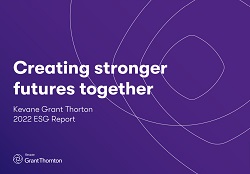-
Financial statements audits
Financial statement audits
-
Compliance audits
Compliance audits
-
Compilations and reviews
Compilations and audit
-
Agreed-upon procedures
Agreed-upon procedures
-
Tax compliance
Business Tax
-
Global mobility services
Through our global organisation of member firms, we support both companies and individuals, providing insightful solutions to minimise the tax burden for both parties.
-
Sales and use tax and indirect taxes
SUT/ VAT & indirect taxes
-
Tax incentives
Navigating the complex landscape of tax incentives in Puerto Rico can be challenging. Whether you're looking to benefit from the Export Services Act (Act 20), the Individual Investors Act (Act 22), or other incentives under Act 60, we provide tailored advice to help you maximize your tax benefits and ensure compliance. Let us help you unlock the potential of doing business in Puerto Rico.
-
Transfer Pricing
The laws surrounding transfer pricing are becoming ever more complex, as tax affairs of multinational companies are facing scrutiny from media, regulators and the public
-
International Business Center
Kevane Grant Thornton is an International Business Center within the Grant Thornton network. Our expert team provides integrated solutions to help Puerto Rico businesses navigate the complex issues that arise when developing global businesses.

-
Business consulting
Our business consulting services can help you improve your operational performance and productivity, adding value throughout your growth life cycle.
-
Business Risk Advisory
Risk is inevitable but manageable. We deliver relevant, timely and practical advices to aid organizations manage risk and improve business performance. We can help you identify, understand and manage potential risks to safeguard your business and comply with regulatory requirements.
-
Technology Advisory
We provide comprehensive solutions to safeguard your business and ensure operational resilience and compliance. Our expert team offers a range of technology advisory services designed to address your cybersecurity needs, enhance business continuity, and manage security effectively.
-
Transactional advisory services
Transactions are significant events in the life of a business – a successful deal that can have a lasting impact on the future shape of the organizations involved. Because the stakes are high for both buyers and sellers, experience, determination and pragmatism are required to bring deals safely through to conclusion.
-
Forensic and investigative services
At Grant Thornton, we have a wealth of knowledge in forensic services and can support you with issues such as dispute resolution, fraud and insurance claims.

In September 2015, the United Nations introduced an ambitious and transformative global agenda known as the Sustainable Development Goals (SDGs). Adopted by all 193 UN member states, these 17 interconnected goals aim to address pressing global challenges, such as poverty, inequality, climate change, environmental degradation, and peace and justice, by 2030. The SDGs represent a call to action to create a more equitable and sustainable world.
Countries worldwide have been making commendable efforts to implement the SDGs. Take, for instance, Sweden, a frontrunner in sustainability, which is actively reducing carbon emissions and embracing renewable energy sources. This European country is aiming to have zero net emissions of greenhouse gasses into the atmosphere by 2045.
Why are the SDGs Crucial for Countries Around the World?
They provide a shared framework for progress and an impetus for cross-sector collaboration. By setting clear targets, nations can align their policies, investments, and efforts to tackle global challenges collectively.
But it's not just nations; businesses too play a pivotal role in achieving the SDGs. Companies often have significant environmental and social footprints, which makes their commitment to sustainability essential. Establishing sustainability plans helps companies reduce their negative impacts on the environment, society, and the economy while enhancing their reputation and competitiveness.
When companies incorporate their sustainability initiatives into Environmental, Social, and Governance (ESG) reports, it sends a clear signal to stakeholders, investors, and consumers about their commitment to long-term sustainability.
The importance of ESG reports in business cannot be overstated. These reports provide transparency on a company's environmental and social performance, which is invaluable for investors looking to support sustainable enterprises. It not only fosters trust but can also lead to financial benefits as more consumers gravitate toward responsible and ethical brands. Companies that prioritize the SDGs in their sustainability plans demonstrate that they are committed to making a positive impact, contributing to global well-being while ensuring their own long-term success.
In a world beset by pressing issues like climate change, poverty, and inequality, the United Nations' Sustainable Development Goals offer a roadmap to a better future. With countries and companies actively working to implement these goals, there's hope that we can create a more sustainable and equitable world for generations to come.
Creating a Stronger and Sustainable Future Together
At Kevane Grant Thornton, our commitment to environmental, social and governance (ESG) excellence is not a response to a moment in time. We have set ESG at the heart of our firm’s strategy to increase risk resilience and drive new growth opportunities.
We see ESG reporting as a business imperative and one of the critical ways in which we take action to carry out our responsibilities as a good corporate citizen towards a better future.
As we are implementing sustainable actions, we can also provide our clients with the right tools to lead sustainable, conscious, and meaningful businesses too.
You can read about our commitment for a stronger future in our 2022 ESG Report [ 5581 kb ].
________________________________________
Kevane Grant Thornton is committed to keeping you updated on all developments that may affect the way you do business in Puerto Rico. Please contact us for assistance in relation to this or any other matter, we will be glad to assist you.


